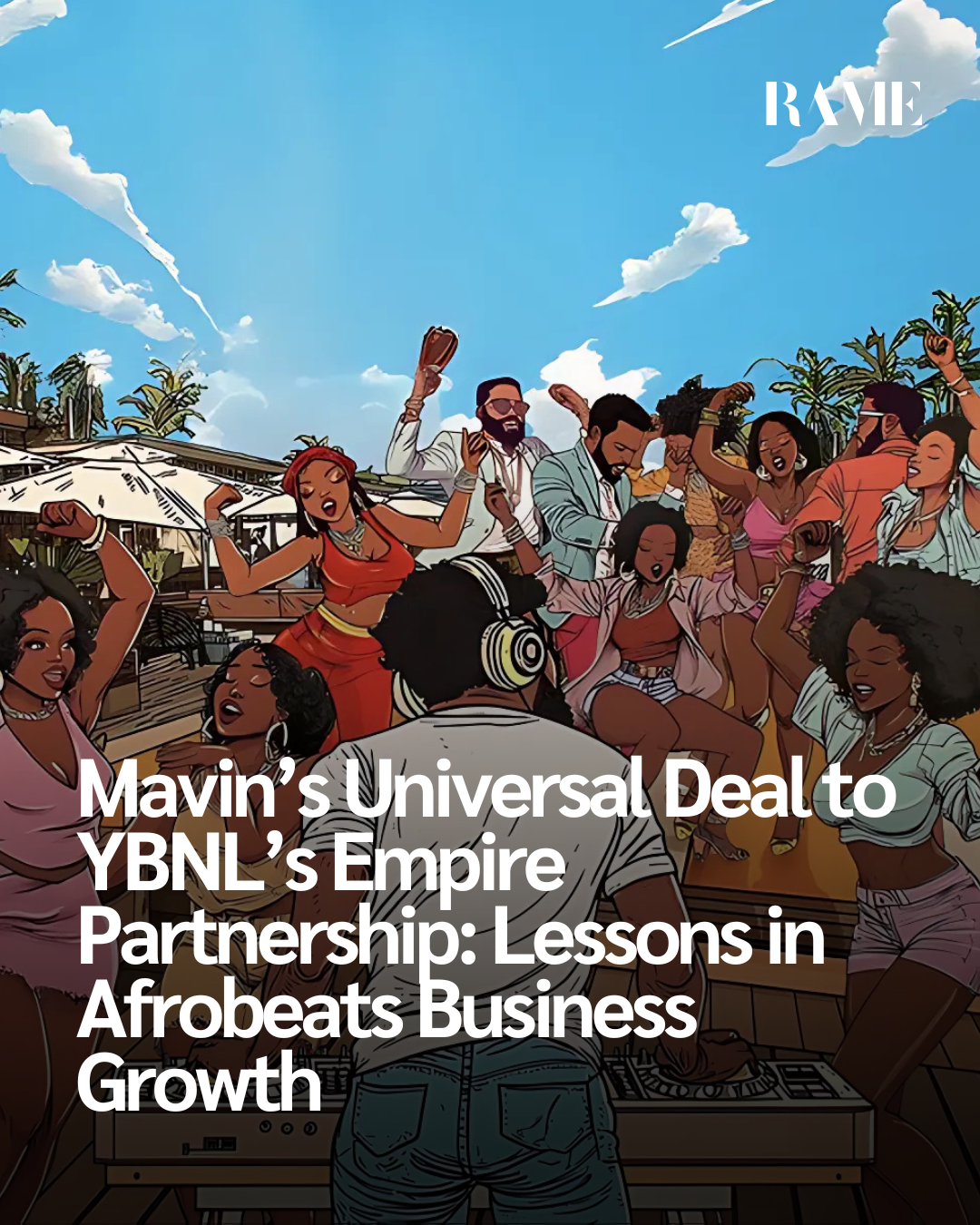The Hidden Deals Behind the Music
For years, African music has been framed through the glow of its biggest stars Wizkid, Burna Boy, Davido, Ayra Starr. Their stories dominate headlines. But here’s the thing: behind every hit song are business decisions shaping the future of Afrobeats. Mergers, acquisitions, and joint ventures in music are more than contracts. They’re moments when African labels prove they can scale globally, attract capital, and build lasting value beyond one celebrity’s shine.
As Samuel “Samo” Onyemelukwe, VP Global Business Development and Managing Director of Trace West Africa, put it, exits matter because they unlock “liquidity, legacy, and leverage,” charting a path for others to follow.
From Passion Projects to Enterprises
The Early Days
In the 1990s and early 2000s, labels like Kennis Music dominated Nigeria’s scene. But most were loose structures, centered on artists rather than enterprise value.
The 2010s Shift
The 2010s ushered in artist-led labels: YBNL by Olamide, Starboy by Wizkid, and Spaceship by Burna Boy. They helped their founders thrive but still revolved heavily around a single figure.
Today’s Structured Labels
Now, we see companies like Mavin Records, Chocolate City, and Native Records growing into real businesses. These transitions prove that African music isn’t just talent-driven it’s enterprise-driven.
Mavin Records: The Blueprint Exit
Founded in 2012 by Don Jazzy, Mavin Records has become the poster child for structuring. With global stars like Rema and Ayra Starr, the label was built deliberately as a brand, not just a launchpad for artists.
Co-leaders like Tega Oghenejobo ensured governance, investor readiness, and professionalism. Backed by Kupanda Capital and TPG, Mavin secured a 2023 partnership with Universal Music Group a deal that injected capital, expanded distribution, and amplified global visibility.
The lesson? Exits, when done right, don’t kill culture. They scale it.
YBNL: Partnership over Sale
Olamide’s YBNL is another playbook. By striking a distribution deal with U.S.-based Empire, YBNL extended its artists Fireboy DML and Asake to international markets while staying rooted in Lagos. It’s a hybrid exit: not selling ownership but leveraging partnerships for reach.
Chocolate City: Reinvention Through Warner
At its peak, Chocolate City housed icons like MI Abaga, Ice Prince, and Jesse Jagz. After management struggles, the label signed with Warner Music in 2019, reviving its relevance with global backing. This was a masterclass in how legacy brands can reinvent themselves.
Native Records: Straight to the Global Stage
In 2022, Native Records built by the minds behind Native Mag and NativeLand Festival signed a joint venture with Def Jam. Instead of waiting decades to prove itself, Native went straight for global alignment, showing how youth-driven collectives can move fast with the right partners.
Why Structure Matters
Contracts, governance, and accounting are not buzzwords they’re the foundation of deals. As Onyemelukwe notes, structure is about clear roles and repeatable processes, the things that make exits possible. Without them, passion projects risk burning out or losing intellectual property to piracy.
The Big 3 Debate and Beyond
The dominance of Davido, Burna Boy, and Wizkid as Afrobeats’ “Big 3” has fueled heated debates. In a 2024 interview with The Breakfast Club, Tiwa Savage rejected the narrative, saying, “This is a continent with so many artists, but we keep reducing it to three.”
Her point reflects reality. Rema, Asake, Tems, Ayra Starr, Omah Lay, Flavour, Kizz Daniel, Yemi Alade, and Olamide Baddo are pushing Afrobeats globally. Still, history shows that “Big 3” or “Big 4” labels exist across industries whether in hip hop (Drake, Kendrick Lamar, J. Cole) or the Premier League (Manchester United, Arsenal, Chelsea, Liverpool).
The tag won’t disappear, but recognition for others must grow.
Conclusion: The Next Billion-Dollar Wave
From Mavin’s Universal deal to YBNL’s Empire partnership, from Chocolate City’s Warner reinvention to Native’s Def Jam leap African music is proving that exits are not sellouts. They’re accelerators.
The next chapter of Afrobeats will be written not only by superstars but by founders and investors who see creative companies as scalable enterprises. Billion-dollar ecosystems are possible, but only if the industry keeps looking beyond the superstar.


